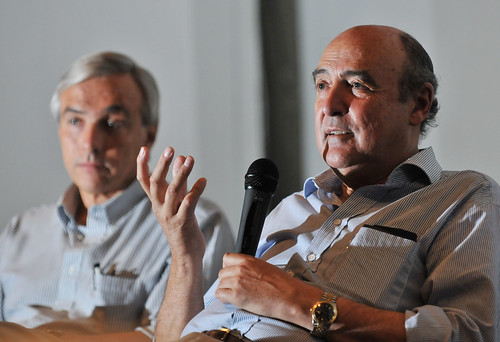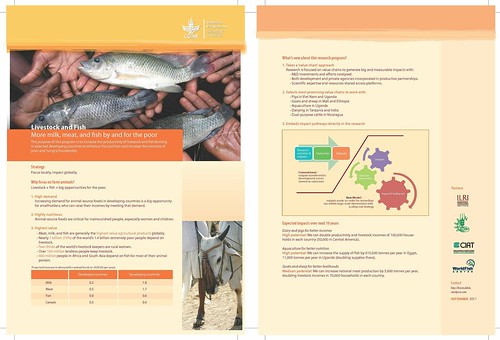Carlos Pérez del Castillo, the board chair of the CGIAR Consortium, which was today granted international organization status (photo credit: Neil Palmer/CIAT).
The Consultative Group on International Agricultural Research (CGIAR), a global partnership that brings together 15 agricultural research centers, including the International Livestock Research Institute (ILRI), from across the world, today signed an agreement establishing the partnership as an international organization.
Today’s granting of the new status to the organization, which is known as the CGIAR Consortium, received wide support from donors such as Denmark and France and is expected to bolster the impact of international agricultural research for development by enabling the Consortium to more effectively carry out its mandate. The new status will also increase the visibility of the 15 research centers and their programs and strengthen links to and ties with national and regional agricultural priorities.
‘This is a major step towards a new era for the CGIAR system and towards science for a food secure future,’ said Carlos Pérez del Castillo, the CGIAR Consortium board chair, in a statement during the signing ceremony, which was held at Montpellier in France.
Over the past 40 years, the CGIAR has received global recognition for being an international partnership that plays a key role in agricultural research and generating knowledge to the benefit of smallholder farmers. CGIAR research aims to reduced rural poverty, increased food security, improve nutrition and health and sustainably manage natural resources.
Read more in News from the Consortium.
Download the press release:
English: http://consortium.cgiar.org/wp-content/uploads/2012/03/CPC-March-2-speech_Eng-FINAL1.pdf
French: http://consortium.cgiar.org/wp-content/uploads/2012/03/CPC-March-2-speech_French.pdf




